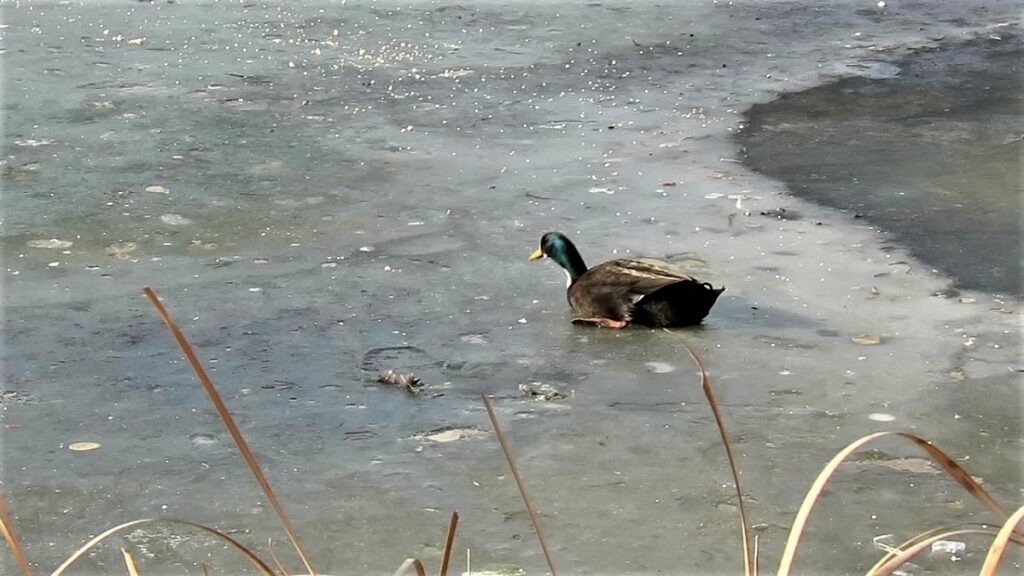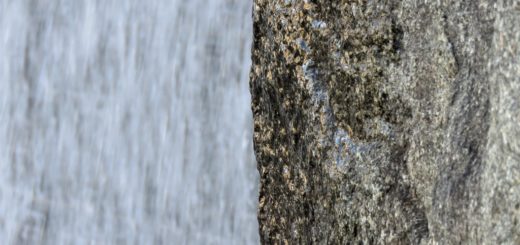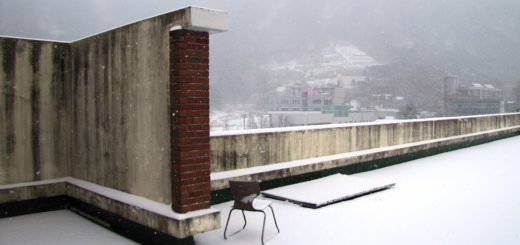Nietzsche’s Collapse Into Madness
This age has pushed its rational minority to the edge. It has become difficult to walk out amongst one’s fellow human beings today without being intermittently struck by the thought of how embarrassing it is to belong to the same species as these others — these bipedal sheep, these regressed pre-individuals. But there is a hint of madness in such a musing, of course, or at least a potential precursor to madness. And it is in that sense that I say we, the rational minority, have been driven to the edge. This is not a new story, or unique to our time. In fact, history affords us one most remarkable example of such a walk along, and finally over, the edge under the strain of frustration with mankind.
The story that has come down to us, and is typically assumed to be at least partly (or poetically) true, is that on the morning of January 3rd, 1889, Friedrich Nietzsche, just weeks after completing the most extraordinarily productive months of his writing life, was taking a walk near his small apartment in Turin, Italy, when he saw a man beating a horse that was stubbornly refusing to move. Nietzsche ran to the scene, shouting at the man to stop, and flung his arms around the horse’s neck to protect the animal from the beating — and then collapsed to the ground in tears. Police officers, prepared to arrest Nietzsche for creating a public disturbance, agreed to release him to his friendly landlord’s custody, but the philosopher’s mind, which had been deteriorating noticeably for weeks, had snapped at last, and he never recovered his sanity.
There has been debate, probably fruitless, about the veracity of this story, with many reputable thinkers and writers coming down on the side of granting its basic truth, while some recent scholars question the reliability of the evidence, or even argue that the whole thing is a later fabrication based on Raskolnikov’s vaguely similar dream in Crime and Punishment. I will not get into those questions here, but will instead follow the tradition in granting that some form of this event really happened. For what is more interesting to me is the longstanding question, always alive among those who do give credence to the story, about its meaning relative to Nietzsche’s philosophy.
In short, it has often been assumed that this episode, Nietzsche’s tearful defense of the animal and subsequent collapse into madness, indicates a sort of ultimate failure of the philosopher’s efforts to be “hard as a diamond,” and of his essential critique of modernity’s over-emphasis on the distinctively Christian virtues of pity and compassion — a critique not based on Nietzsche’s inability to experience those passions, but on the contrary on his distrust of these sensitivities in himself, judging them profoundly duplicitous and dangerous to the soul. Here he was at the end of everything, his last moment of semi-sane action, literally brought to his knees by compassion, even pity, for a poor animal suffering abuse. This view is punctuated by one of its more recent and famous advocates, Milan Kundera, who in The Unbearable Lightness of Being describes the event as Nietzsche “apologizing to the horse for Descartes.” (Descartes argued that animals are in effect living machines which do not have souls in any proper sense.)
I believe this interpretation of the Turin story is convenient as a tragic final act, but quite unconvincing as intellectual biography. Something else was going on here — something that, far from being a contradiction of Nietzsche’s personal philosophy, was rather a culminating embodiment of his thought concerning the fate of man in modern society. The horse story’s meaning is not pity, i.e., the failure of Nietzsche’s personal philosophy of hardness, but rather a visceral manifestation of his long battle with what he evocatively dubbed “the after-dinner nausea,” i.e., severe distaste for the slavish tendencies of mankind.
In spite of all his painful and brilliant struggles — philosophical, psychological, and physical — what he could not overcome in the end was not his temptation to the dangerous abyss of compassion, but rather his sickness at the smallness of modern humanity, as embodied in this moment by a man beating his horse angrily for no good reason. Mankind had defeated him, at least on the personal level. The all-too-human ugliness of egalitarian modernity — the cycle of mindless attacks on the will to life, the weakling’s vengeful craving to punish someone for his own weakness, the unbreakable circle of the will to stupidity — got to him at last. He flung his arms around that horse’s neck in a hopeless, symbolic attempt to protect the best of life, the fading possibility of a world of nobility and strength, from the smothering, petty violence of a withered and bitter race of men. He lost his final grip on his mind at that moment — beaten into submission by the smallness of collective mankind.
In support of my interpretation of the tale of Nietzsche’s defense of the horse and sudden complete breakdown, I offer two points of comparison, one textual and one personal.
First, consider the following well-known passage from Beyond Good and Evil:
— “But what has happened to you?” — “I do not know,” he said, hesitatingly; “perhaps the Harpies have flown over my table.” — It sometimes happens nowadays that a gentle, sober, retiring man becomes suddenly mad, breaks the plates, upsets the table, shrieks, raves, and shocks everybody — and finally withdraws, ashamed, and raging at himself — whither? for what purpose? To famish apart? To suffocate with his memories? To him who has the desires of a lofty and dainty soul, and only seldom finds his table laid and his food prepared, the danger will always be great — nowadays, however, it is extraordinarily so. Thrown into the midst of a noisy and plebeian age, with which he does not like to eat out of the same dish, he may readily perish of hunger and thirst — or, should he nevertheless finally “fall to,” of sudden nausea. — We have probably all sat at tables to which we did not belong; and precisely the most spiritual of us, who are most difficult to nourish, know the dangerous dyspepsia which originates from a sudden insight and disillusionment about our food and our messmates — the after-dinner nausea.
–Nietzsche, BGE (Helen Zimmern translation, 1906), §282
Nietzsche lived mostly alone, mostly friendless, and mostly estranged from his family, during the most productive years of his life. He had little in the way of a safe harbor or home fire to buttress his courage through his battles, and all the battles he chose were dangerous, solitary, sleepless, and, as it were, ultimate in character. He wrote as no one had ever written, and often at remarkable rates of productivity, relative to quality. And yet he had almost no readership, no scholarly advocates to speak of, only a few friends who took him seriously, and his greatest books were self-published in small quantities, with most of the copies returned to him from booksellers who could not attract any interest in these efforts, among the greatest works of nineteenth century literature.
His health was so perennially poor that he was forced to give up his one real university teaching position while very young, and to live off its tiny pension thereafter. In fact, if his health had not forced him out of academe, his writing would soon have done so anyway. His most important early work, The Birth of Tragedy, was categorically dismissed in academic circles as the work of an unscholarly, perhaps unhinged, iconoclast. (Perhaps it was, but this is only evidence in favor of its superiority to anything that has ever been granted the seal of approval in mainstream academic circles.) His one great personal connection within German society was his friendship with much older mentor Richard Wagner — but the fundamental and complete nature of his personal and philosophical break with Wagner and the Wagnerian cultural movement only exacerbated his alienation from the German intellectual mainstream. In the final months before his collapse, he wrote, working at lightning speed, arguably the strangest and most ironically self-glorifying autobiography ever conceived, Ecce Homo, in which, though the prose is unquestionably lucid, one cannot help seeing hints of a man losing, shall we say, his perspective.
Whatever the more quotidian causes of his mental deterioration — and there were undoubtedly medical problems, in addition to long-term over-reliance on pain medications for his frequent debilitating headaches and constant digestive ailments — there can be little question that his condition was terribly worsened by years of enveloping and exhausting work on an intellectual project that may most simply be described as a superhuman effort to personally overturn everything.
Then one day, in this mentally and physically fragile state, he went for a walk — his preferred activity for thinking — and came upon a banal scene that somehow encapsulated so many of his disgusts with modern man, so much of what he had spent years of his life analyzing and exposing like no one else (but to almost no one else’s interest). An anonymous man, frustrated at his impotence and ineffectualness in life, was taking out his humiliation on an innocent victim, his horse, thereby grotesquely satisfying an emaciated will to power in the form of a pure, senseless assault on the principle of life. Suddenly unable to stand his appalling race anymore, Nietzsche, spiritually brittle and inflexible in his exhaustion, shouted at the man to stop the stupidity, finally flinging himself around the horse’s neck in a ludicrous lunge at stopping all this insanity, as all his years of brilliant thought and beautiful writing had thus far utterly failed to do.
That was the last coherent moment of the life and thought of Friedrich Nietzsche — a moment fueled by the accumulated suffering of a hypersensitive soul clinging ever more tenuously (though with ever more outward bravado) to a deeply theoretical belief that overcoming was still possible. The man who knew a lifetime of intimacy with stomachaches, migraines, and acute myopia had suffered his final, summary case of that “after-dinner nausea” he understood so profoundly.
— “But what has happened to you?” — “I do not know,” he said, hesitatingly; “perhaps the Harpies have flown over my table.” — It sometimes happens nowadays that a gentle, sober, retiring man becomes suddenly mad, breaks the plates, upsets the table, shrieks, raves, and shocks everybody — and finally withdraws, ashamed, and raging at himself — whither? for what purpose? To famish apart? To suffocate with his memories?
And now, a personal anecdote that helps to clarify the preceding interpretation in my own mind. Whether it will have a similar effect on the reader, I cannot know.
The most popular feature of my university’s campus, from the point of view of weekend visitors, is a large decorative pond which is permanent home to several domesticated ducks and geese, along with many other wild birds that use it as a waystation, feeding station, or winter residence. A few days ago, having visited the convenience store across the road from the pond with my wife, I was making my way back to my office, looking out over the lovely pond as I passed, in search of any unusual birds or activity.
I noticed a family — parents with two very small children — at the railing where people often stand to throw crackers or other snacks to the birds. Near this railing, just a few steps away from where the family was standing, there is a huge decorative stone, surrounded by a clearly defined circle covered with thousands of white rocks. Though not to my taste, this was some engineer’s idea of a nice landscaping feature, and presumably installed at great expense. I then noticed that the children, a boy and a girl, neither of whom could have been more than four years old, were taking white stones from that circle and then running back to the railing to throw them down into the pond, where the resident flightless geese and ducks, along with many smaller birds, were gathered. Any of those rocks, even thrown by weak young children, could have hurt or killed many of those birds. As I had seen this sort of thing on many previous occasions, I was immediately annoyed by the parents, who did nothing to stop the children’s behavior. I instinctively stopped and glared at the idiots from the roadside, hoping they would notice the attention and take the hint. Instead, I watched as both parents went to the circle of stones, picked up two large handfuls each, and returned to the railing to deposit them there for the children, creating a convenient arsenal with which their children could continue to rain rocks down on the vulnerable birds.
Two weeks earlier, I had spent an hour with rocks and sticks at that very spot myself, breaking ice in alliance with a few gathered strangers, in an effort to free a duck that had gotten its leg stuck in the freezing water overnight, and was obviously injured. (It survived well enough, though with permanent damage to the leg.) And now, here were two parents effectively teaching their children that taking senseless potshots at these birds — university property, as well as being living creatures — with large stones was a fun activity, to be encouraged and cheered on.
Upon seeing this, I reflexively let out a half-suppressed shout from the roadside, more an agonized act of fury than a meaningful statement. Luckily for me, my wife was still with me, and immediately grabbed my arm to snap me out of the rage, as wives can do, and then walked closer to the family herself to deliver a more subtle version of the message my spiking blood pressure was trying to deliver.
For a year, I have watched, as we all have, while civilization sinks, its great battle lost, to borrow from Yeats. The human race, on so many levels, has proved, even beyond the worst expectations of this very jaded and unoptimistic philosophic soul, to have been reduced to a condition of submissive slavishness for which a hundred years of universal tyranny will be the lightest sentence we may even hope for. Increasingly (as regular readers may have noticed), I have lost any faint dreams of effective resistance, let alone revitalization, in the near term, having resigned myself fully to the truth that today’s defeat is total and final, and that only the inevitable cycles of nature will renew human social existence, though only after generations of suffering by many, and subterranean struggle by a few.
Against that spiritual and political backdrop, that day’s meaningless little act of human stupidity at the pond — parents, like almost all parents today, “raising” their children amorally, because they themselves are amoral — suddenly pushed me, in spite of my better instincts, almost to the snapping point.
As I reflected on that moment and its context in subsequent hours and days, I felt that I understood, more clearly than ever, what happened that January morning in Turin, a hundred and thirty-two years ago.
Thrown into the midst of a noisy and plebeian age, with which he does not like to eat out of the same dish, he may readily perish of hunger and thirst — or, should he nevertheless finally “fall to,” of sudden nausea. — We have probably all sat at tables to which we did not belong; and precisely the most spiritual of us, who are most difficult to nourish, know the dangerous dyspepsia which originates from a sudden insight and disillusionment about our food and our messmates — the after-dinner nausea.



